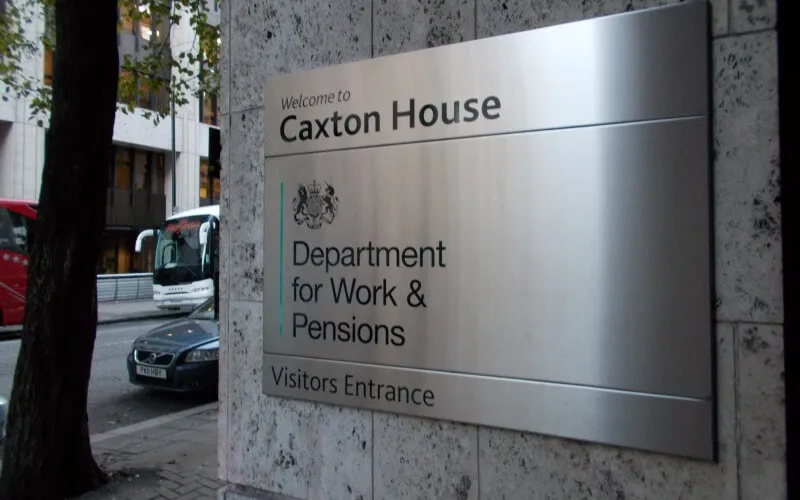Information released by work and pensions secretary Therese Coffey suggests that failings within the universal credit, personal independence payment and employment and support allowance systems have all contributed to the deaths of benefit claimants in the last three years.
In a letter responding to a series of questions from the Commons work and pensions select committee, Coffey has released just a small proportion of the recommendations made in the last three years by secret internal reviews into the deaths of benefit claimants.
Department for Work and Pensions (DWP) figures show there were 151 internal process reviews (IPRs) completed by the department between July 2019 and June 2022, and many of them will have made multiple recommendations for improvements to policies and procedures.
But Coffey has released just 20 recommendations to the committee, without any additional information suggesting when the reviews took place.
It appears that she has only released recommendations that are less likely to be embarrassing for her department, although they still suggest continuing systemic flaws within DWP’s benefits assessment systems.
Disability News Service (DNS) is waiting for the information commissioner to rule on a complaint about DWP’s refusal to release recommendations from IPRs completed in the last three years.
The 20 recommendations Coffey released to the committee provide only suggestions of the flaws that led to the deaths and incidents of serious harm that were being investigated.
But six of them mention DWP’s employment and support allowance (ESA) department, three mention universal credit, two mention personal independence payment, while seven mention DWP’s retirement services department.
Among the concerns that appear to have been raised are a failure to share information between different departments, a failure to follow rules on visits to claimants who have missed an assessment or interview, and failures related to closing claims after a claimant has died.
Another recommendation suggests that the work of DWP’s complaints department has not been “comprehensive and factually accurate”.
When asked a series of questions about the IPR recommendations she had released, including why she had released so few, and how many she was holding back, a DWP spokesperson refused to comment.
Instead, he told DNS to submit a freedom of information request, despite DWP previously telling DNS that its latest attempt to secure information about the latest IPRs was “vexatious” and the “effort required to meet the request will be so grossly oppressive in terms of the strain on time and resources, that the authority cannot reasonably be expected to comply, no matter how legitimate the subject matter or valid the intentions of the requester”.
In the letter to the committee, Coffey also confirmed that she would not release a report which would show which of DWP’s websites and other digital services are breaching its legal duties on accessibility.
DWP has released summary reports which show how few of its websites and other digital services comply with regulations.
One report showed that 36 of the 141 “live” digital services run by DWP – including websites, mobile phone apps and software – were said to be “very high risk”, with another 23 considered “high risk”.
But Coffey told the committee’s chair, Sir Stephen Timms, in the letter: “I understand why there may be public interest in the release of this information; however, in this case we believe the balance is weighted strongly in favour of withholding the information because releasing it would give a misleading picture of our progress.”
Among other reports that Coffey insisted she would not release were a 2016 evaluation of the impact of the reduction of the benefit cap, a report on the effectiveness of support for “vulnerable” claimants of universal credit, and a report on the evaluation of benefit sanctions.
She also confirmed that she had “no plans” to publish statistics that would show what happened to claimants of universal credit who have been put through the work capability assessment (WCA) process.
DNS is currently waiting for DWP to reply to a letter from the Office for Statistics Regulation (OSR) about what OSR describes as a “gap in the information”.
Coffey told Sir Stephen: “While we will keep this position under review, I anticipate there will be fewer resources available and I am not committing to developing new statistics at this time.”
A note from the editor:
Please consider making a voluntary financial contribution to support the work of DNS and allow it to continue producing independent, carefully-researched news stories that focus on the lives and rights of disabled people and their user-led organisations.
Please do not contribute if you cannot afford to do so, and please note that DNS is not a charity. It is run and owned by disabled journalist John Pring and has been from its launch in April 2009.
Thank you for anything you can do to support the work of DNS…

 Government ignores warnings of new DWP deaths, and UN intervention, as MPs pass universal credit cuts bill
Government ignores warnings of new DWP deaths, and UN intervention, as MPs pass universal credit cuts bill Urgent letter from UN to Labour government warns: We think your cuts continue Tory attack on disability rights
Urgent letter from UN to Labour government warns: We think your cuts continue Tory attack on disability rights Race against time to secure DWP deaths evidence before parliament passes new benefit cuts bill
Race against time to secure DWP deaths evidence before parliament passes new benefit cuts bill